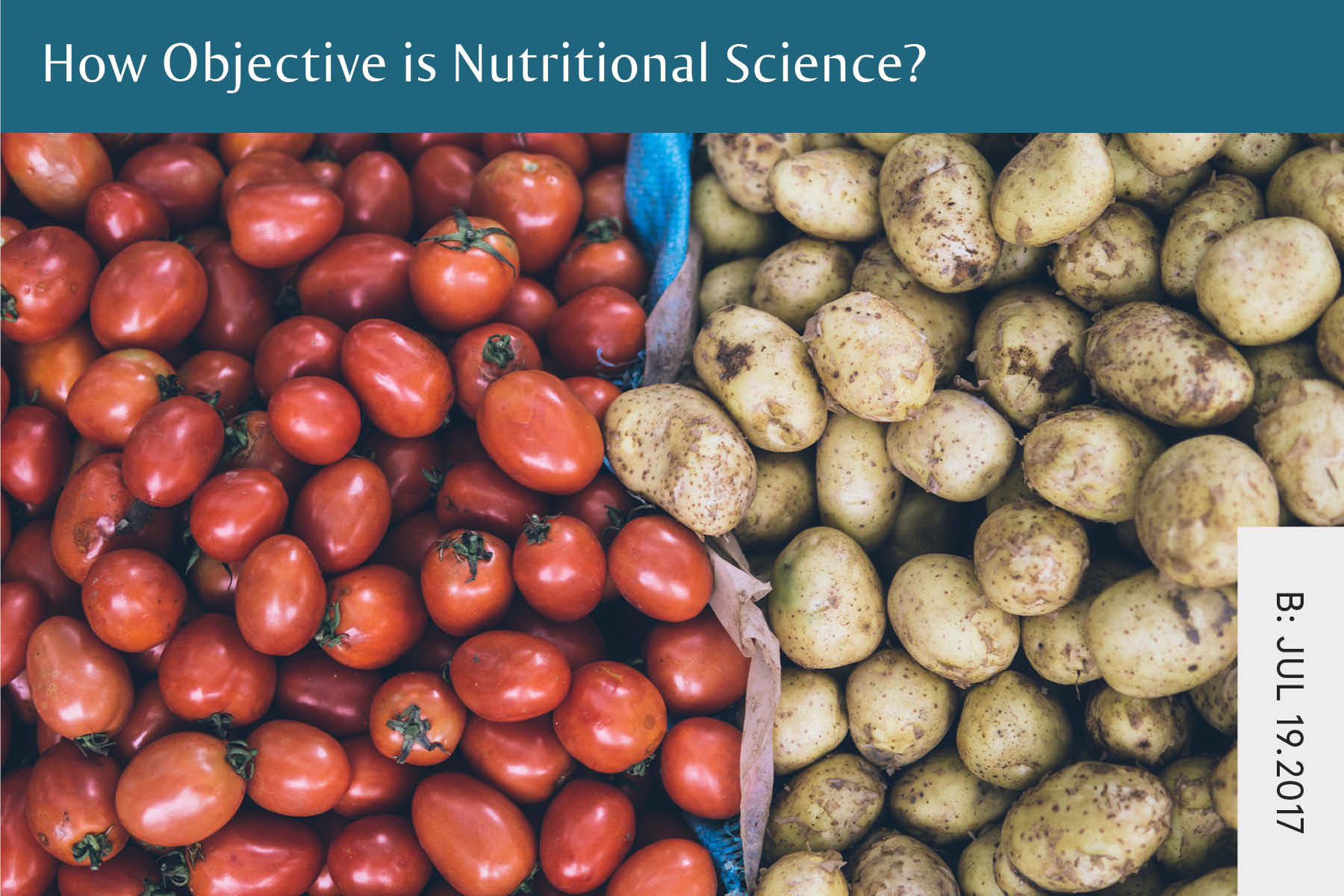

Lately I’ve been listening to lots of podcasts about biases within human nature. Podcasts like You Are Not So Smart and Hidden Brain that expose flaws in our ability to be objective as human beings.
And it got me thinking about science, particularly nutritional science. Science is held up as this gold standard of objectivity and people consider the “scientific method” to be empirical and measurable.
You read people like Michael Gerber and Dean Ornish, who claim to be objective and just follow the science. And based on this science, they promote a vegan or plant-based diet that is low fat.
Then you have people like Chris Kresser and Dr. Mark Hyman, who equally claim to be evidence-based. They promote a diet that is “ancestral”, including more protein and animal products, and being higher in fat and lower in carbs.
Or you have someone like Linda Bacon, the champion of the Health At Every Size movement. On one hand, her supporters believe that she’s doing amazing work, uncovering biases in the way that we talk about weight and health. But her detractors say that she cherry picks the studies to paint the picture that matches her narrative.
Which actually is a common refrain you hear. Whenever someone is doing science someone agrees with, they are doing “evidence-based” work. When someone comes to a conclusion that goes against what you believe, the easy take down of this person is to claim that they “cherry pick the data”.
And so people then argue, citing their favourite authors and scientists to back up their case, and it devolves into a shouting match of “my gurus is better than your guru”.
Except in very rare cases, I don’t think individuals are intentionally misleading the public. Yes, there may be people that say something just because they are on some company’s payroll, or they have a vested interest in a product, or because they’ve simply read a few health books and have come to the conclusion they know everything on every aspect of health.
But even in these cases, most people typically believe what they are saying.
I was listening to Chris Masterjohn’s recent podcast called “Is Coconut Oil Killing Us”. It looked in detail at the recent recommendation by the American Heart Association that people should avoid coconut oil.
Chris went through all the studies that were used as part of the recommendation. He explained the problems with some of them and why they should have been excluded. Or why the results of other studies had confounding factors that skewed what they showed.
I think Chris did a fantastic job with the show. But while I found myself nodding my head in agreement, I was also aware of how much of what he was saying matched up with my own thoughts and therefore the problem of confirmation bias arises. So had he really done a great job with the show, or was I just thinking that he had because I agreed with him?
I like to think of myself as objective. I try to read ideas that go against my own to test them out. I’ve changed my mind on a great number of things over the years, as I research and learn new things. And this continues to happen. But I’m also aware of how human nature makes it impossible to be completely free of bias.
I try to counter this by being non-dogmatic. Not promoting extreme practices but instead going for moderation. But again, this can lead to another bias, which is the middle ground fallacy; the idea that a compromise or middle point between two extremes must be the truth.
(Although there is good research to back up this middle ground, demonstrating that as humans we can do well on a wide variety of eating styles and that people don’t typically need to go to extremes).
But this isn’t alarmist or meant to create fear. It’s just an acknowledgment that as human beings we have implicit biases. And even though the scientific method is meant to eliminate this factor, it’s humans that are creating the studies and interpreting the results, so biases (however small or large) will still exist.
So I have a suggestion for you. Go and read something that challenges your beliefs and start to think about “why do I believe what I do on this topic?”
Or check out this list of cognitive biases and ask yourself “how often do I do that?” Because if you’re like me, you’ll notice it happens fairly frequently. And simply becoming aware of the different biases can be the first steps to trying to minimise the impact that have in your life.
I’m a leading expert and advocate for full recovery. I’ve been working with clients for over 15 years and understand what needs to happen to recover.
I truly believe that you can reach a place where the eating disorder is a thing of the past and I want to help you get there. If you want to fully recover and drastically increase the quality of your life, I’d love to help.
Want to get a FREE online course created specifically for those wanting full recovery? Discover the first 5 steps to take in your eating disorder recovery. This course shows you how to take action and the exact step-by-step process. To get instant access, click the button below.
Discover the First 5 Steps To Take In Your Eating Disorder Recovery
Get started the right way and be on the path to full recovery and the freedom it will bring YOU.
Unlike other approaches focusing on just one aspect of recovery, this course shares a framework that demonstrates what full recovery is really about and gives you the tools to get there.
Get Instant Access!
Share
Facebook
Twitter